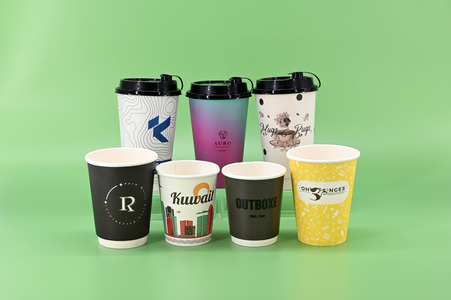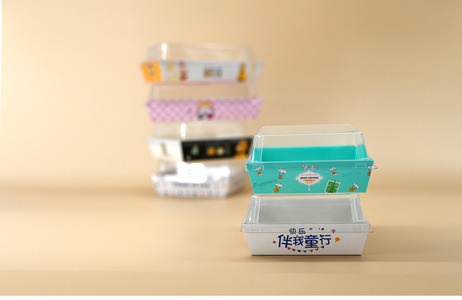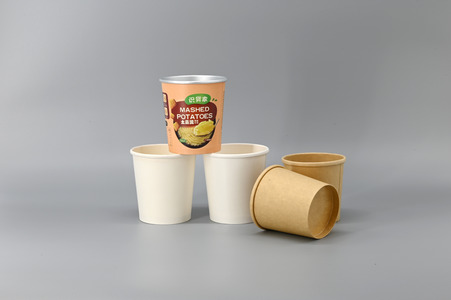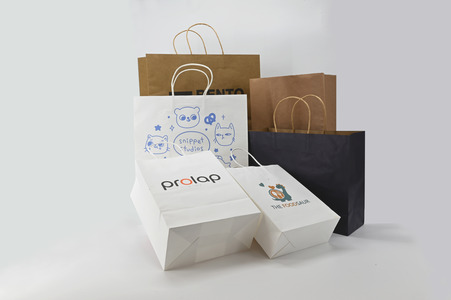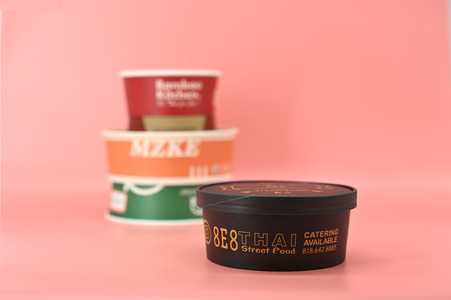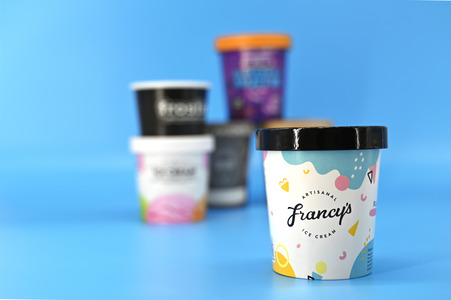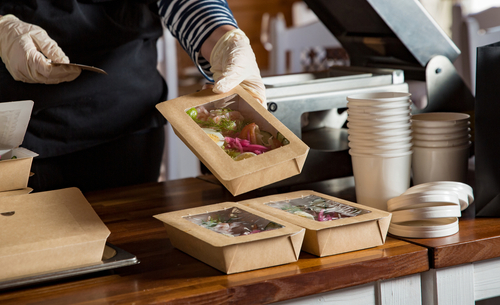
08/07/2024
Make Your Event Memorable with Our Professional Services
Comprehensive Event Services
1. Event Planning and Coordination
Our experienced event planners manage every detail of your event, from the initial concept to the final execution. Our services include:- Venue Selection: Finding the perfect location for your event.
- Theme and Décor: Creating a unique and beautiful setting that matches your vision.
- Logistics Management: Coordinating all logistical aspects to ensure a seamless event.
2. Catering Services
Delight your guests with our exceptional catering options. We provide a range of services, from formal dinners to casual buffets, ensuring your guests enjoy delicious food and beverages. Our catering services include:- Custom Menus: Tailoring menus to meet all dietary preferences and requirements.
- Professional Chefs and Staff: Offering expert culinary and service staff to ensure an exceptional dining experience.
- Complete Beverage Service: Providing a wide selection of drinks, including cocktails, wines, and non-alcoholic options.
3. Audio-Visual Solutions
Enhance your event with our state-of-the-art audio-visual equipment. We provide everything you need for a successful event, from sound systems and lighting to projectors and screens. Our audio-visual solutions include:- Sound Systems: Ensuring clear and powerful audio for speeches, music, and presentations.
- Lighting: Creating the perfect ambiance with customizable lighting options.
- Visual Equipment: Offering projectors and screens for impactful presentations and entertainment.
4. Event Staffing
Our professional event staff are dedicated to ensuring your event runs smoothly. From event coordinators and ushers to security personnel, our team provides exceptional service. Our staffing services include:- Event Coordinators: Managing the event flow and addressing any issues that arise.
- Guest Services: Assisting guests and ensuring they have a pleasant experience.
- Security Personnel: Ensuring the safety and security of your event.
Why Choose YES Group UK?
Stress-Free Planning
With our comprehensive event services, you can enjoy a stress-free planning process. We handle all the details, allowing you to focus on your guests and enjoy the event.Customized Solutions
We tailor our services to meet your specific needs, ensuring your event reflects your vision and exceeds expectations.High Standards
We maintain the highest standards of quality in all aspects of our services. Our equipment and staff are top-notch, ensuring exceptional results for your event.Flexibility
Our services are flexible and adaptable, allowing us to accommodate any changes or last-minute adjustments. This ensures your event stays on track and meets your goals.How to Get Started
Getting started with our event services is easy. Contact us to discuss your event requirements and schedule a consultation. Our team will work with you to develop a customized plan that ensures your event is a success.Conclusion
Choosing YES Group UK for your event services guarantees a seamless, memorable, and successful event. With our comprehensive range of services, experienced team, and client-focused approach, we are the ideal partner for all your event needs. Contact us today to learn more about how we can help you create an unforgettable event experience.
08/07/2024
Transform Your Events with Professional Services
Comprehensive Event Services
1. Event Planning and Management
Our experienced event planners handle every detail to ensure your event is a success. From the initial concept to the final execution, we manage all aspects of planning and logistics. Our services include:- Venue Selection: Finding the perfect location for your event.
- Theme and Décor: Creating beautiful themes and decorations to match your vision.
- Logistics Coordination: Managing transportation, scheduling, and all logistical details.
2. Catering Services
Impress your guests with our diverse catering options. We offer everything from formal dinners to casual buffets, tailored to suit your event’s needs. Our catering services include:- Menu Customization: Designing menus to accommodate all dietary preferences.
- Professional Chefs and Staff: Providing top-notch culinary and serving expertise.
- Complete Beverage Service: Offering a wide range of drinks, from cocktails to soft drinks.
3. Audio-Visual Services
Enhance your event with our high-quality audio-visual equipment. We provide the latest technology to ensure your presentations and entertainment are flawless. Our audio-visual services include:- Sound Systems: Ensuring clear and crisp audio.
- Lighting Solutions: Setting the perfect mood with customizable lighting.
- Visual Equipment: Providing projectors, screens, and video services for impactful presentations.
4. Event Staffing
Our professional staff are trained to ensure your event runs smoothly. From coordinators and ushers to security personnel, our team is dedicated to providing excellent service. Our staffing services include:- Event Coordinators: Overseeing the event flow and addressing any issues.
- Guest Services: Assisting attendees and ensuring a pleasant experience.
- Security Services: Ensuring the safety and security of your event.
Why Choose Our Services?
Stress-Free Planning
Our comprehensive event services take the stress out of planning. We handle all the details, so you can relax and enjoy your event.Customized Solutions
We tailor our services to meet your specific needs, ensuring your event reflects your vision and exceeds expectations.High Standards
We maintain the highest standards of quality in all aspects of our services. Our equipment and staff are top-notch, ensuring exceptional results.Flexibility
Our services are flexible and adaptable, allowing us to accommodate any changes or last-minute adjustments. This ensures your event stays on track and meets your goals.How to Get Started
Getting started with our event services is easy. Contact us to discuss your event requirements and schedule a consultation. Our team will work with you to develop a customized plan that ensures your event is a success.Conclusion
Choosing YES Group UK for your event services guarantees a seamless, memorable, and successful event. With our comprehensive range of services, experienced team, and client-focused approach, we are the ideal partner for all your event needs. Contact us today to learn more about how we can help you create an unforgettable event experience.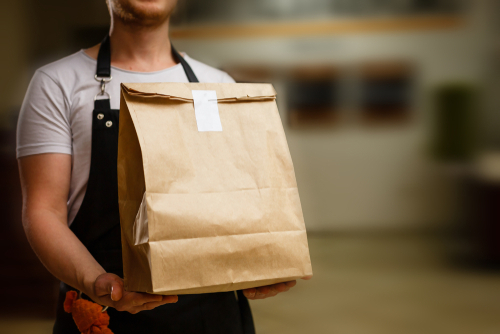
03/07/2024
Unforgettable Events with Expert Services
Why Our Event Services Stand Out
1. Complete Event Management
Our team offers complete event management services, covering every detail from initial planning to final execution. We handle all aspects of your event, ensuring everything runs smoothly and efficiently. Our services include:- Venue Selection and Setup: We help you choose the perfect venue for your event and handle all the setup and decoration to match your vision.
- Logistics and Coordination: From transportation to scheduling, we manage all logistical aspects to ensure a seamless experience for you and your guests.
- Vendor Management: We liaise with vendors and suppliers to ensure timely delivery and quality of all necessary services and products.
2. Custom Catering Solutions
We provide custom catering solutions to fit the unique needs of your event. Our menus are crafted to suit a variety of tastes and dietary requirements, guaranteeing your guests enjoy a delightful culinary experience. Our catering services include:- Menu Planning: We work with you to create a menu that reflects your tastes and preferences, offering a wide range of options from gourmet meals to casual buffets.
- Food Preparation and Presentation: Our experienced chefs use fresh, high-quality ingredients to prepare delicious meals that are beautifully presented.
- Professional Service Staff: Our courteous and professional staff ensure smooth service, allowing your guests to relax and enjoy the event.
3. Advanced Audio-Visual Equipment
Enhance the atmosphere and effectiveness of your event with our advanced audio-visual equipment. We offer state-of-the-art sound systems, lighting, and visual aids to ensure your presentations and performances are impactful. Our audio-visual services include:- Sound Systems: High-quality audio equipment to ensure clear and crisp sound for speeches, music, and entertainment.
- Lighting: Customizable lighting solutions to create the perfect ambiance for your event.
- Visual Aids: Projectors, screens, and other visual equipment to support presentations, videos, and displays.
4. Professional Event Staff
Our professional event staff are trained to provide exceptional service in various roles, including event coordinators, ushers, and security personnel. Their expertise ensures that your event is managed seamlessly from start to finish. Our staff services include:- Event Coordinators: Experienced coordinators to manage the flow of your event and ensure everything runs according to plan.
- Ushers and Attendants: Friendly and professional staff to assist guests and provide directions and support.
- Security Personnel: Trained security staff to ensure the safety and security of your event.
Benefits of Choosing Our Services
Stress-Free Experience
With our comprehensive event services, you can enjoy a stress-free planning and execution process. We take care of all the details, allowing you to focus on your guests and enjoy the event. Our approach includes:- Detailed Planning: Thorough planning and preparation to ensure no detail is overlooked.
- Effective Communication: Regular updates and clear communication to keep you informed and involved throughout the process.
- Problem-Solving: Proactive problem-solving to address any issues that arise and ensure a smooth event.
Tailored Solutions
We understand that each event is unique. Our services are tailored to meet your specific needs and preferences, ensuring that your event reflects your vision and exceeds expectations. Our customization options include:- Personalized Themes: Custom themes and decorations to match your event’s style and purpose.
- Flexible Services: Adaptable services that can be modified to suit changes in your event’s requirements.
- Client-Centered Approach: A focus on your goals and priorities to deliver a truly personalized experience.
High Standards of Quality
We are committed to maintaining the highest standards of quality in all aspects of our services. Our equipment is top-notch, and our staff are experienced professionals dedicated to delivering exceptional results. Our quality assurance includes:- Rigorous Standards: Strict quality control measures to ensure excellence in every aspect of our services.
- Continuous Improvement: Regular training and updates to keep our team at the forefront of industry best practices.
- Client Feedback: A commitment to listening to and learning from client feedback to continually enhance our services.
Adaptability and Flexibility
Our services are designed to be flexible and adaptable, allowing us to accommodate any changes or last-minute adjustments. This ensures that your event remains on track and meets your goals, regardless of any unexpected challenges. Our flexibility includes:- Responsive Adjustments: Quick and effective responses to changes and unforeseen circumstances.
- Versatile Solutions: A wide range of options and alternatives to address any event needs.
- Reliable Support: Consistent support and assistance to ensure a smooth and successful event.
How to Get Started
Starting with our expert event services is easy. Contact us to discuss your event requirements and schedule a consultation. Our team will work with you to develop a customized plan that ensures your event is a success. Our process includes:- Initial Consultation: A detailed discussion to understand your vision, goals, and requirements.
- Proposal and Planning: A comprehensive proposal outlining our services and a detailed plan for your event.
- Execution and Follow-Up: Professional execution of your event and follow-up to ensure your complete satisfaction.
Conclusion
Choosing our expert event services guarantees a seamless, memorable, and successful event. With our comprehensive range of services, experienced team, and client-focused approach, we are the ideal partner for all your event needs. Contact us today to learn more about how we can help you create an unforgettable event experience.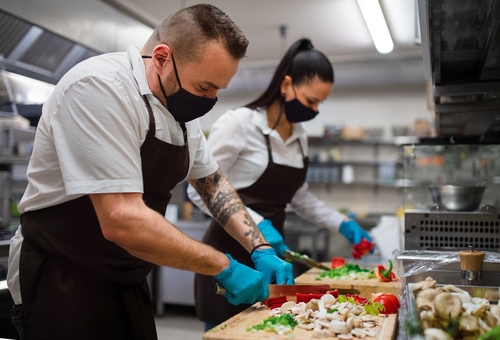
28/06/2024
Elevate Your Event Experience with Professional Services
Comprehensive Event Services
1. Event Planning and Management
Expert event planners and managers handle all aspects of your event, from initial concept to final execution. They work closely with you to understand your vision, manage budgets, select venues, and coordinate logistics, ensuring every detail is perfectly executed.2. Audio-Visual Solutions
Top-tier audio-visual services provide the technology needed to enhance your event. This includes sound systems, lighting, projectors, and staging, all operated by experienced technicians to ensure seamless integration and performance.3. Event Staffing
Professional event staffing services supply trained personnel for various roles, including ushers, security, coordinators, and waitstaff. These professionals ensure that your event runs smoothly and that guests receive top-notch service throughout the event.4. Catering Services
Delicious and well-presented catering can significantly enhance your event. Catering services offer a variety of menu options, from elegant plated dinners to casual buffets and hors d'oeuvres, ensuring your guests enjoy high-quality food that matches the theme and style of your event.Why Choose Professional Event Services?
Expertise and Experience
Professional event service providers bring years of experience and a wealth of expertise to your event. They have the knowledge and skills to anticipate challenges, provide creative solutions, and ensure that your event is successful and memorable.Customized Solutions
Every event is unique, and professional event services are tailored to meet your specific needs. Whether you’re planning a corporate conference, wedding, or private celebration, these services are customized to align with your vision and exceed your expectations.High-Quality Equipment
Using state-of-the-art equipment ensures the success of your event. Professional event services include the latest audio-visual technology, reliable staging, and other essential equipment, all maintained to the highest standards.Stress-Free Experience
Hiring professional event services allows you to enjoy a stress-free experience. The event team handles all the logistics, coordination, and troubleshooting, allowing you to focus on your guests and enjoy the event.Key Benefits of Hiring Professional Event Services
Seamless Execution
Professional event services ensure seamless execution from start to finish. From setup to teardown, every aspect is meticulously managed to provide a flawless event experience.Enhanced Guest Experience
High-quality services and attentive staff create a memorable experience for your guests. Whether through excellent catering, perfect audio-visual presentations, or smooth logistics, your guests will appreciate the attention to detail.Time and Cost Efficiency
Professional event planners have the experience to manage budgets effectively and maximize resources. They can often negotiate better deals with vendors and suppliers, saving you time and money.Flexibility and Adaptability
Professional event services are adaptable and can accommodate any changes or unexpected challenges that arise. This flexibility ensures that your event remains on track and meets your objectives, regardless of any last-minute adjustments.How to Get Started
Starting with professional event services is straightforward. Contact a reputable event service provider to discuss your needs and schedule a consultation. The team will work with you to develop a customized plan that meets your requirements and ensures the success of your event.Conclusion
Choosing professional event services is the key to a successful, memorable, and stress-free event. With a comprehensive range of services, expert teams, and customized solutions, professional event service providers are the ideal partners for all your event needs. Explore these services and discover how they can elevate your next event.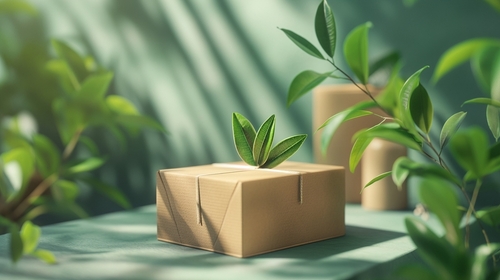
19/06/2024
The Benefits of Eco-Friendly Takeaway Packaging for Your Business
1. Reduces Environmental Impact
Eco-friendly packaging materials are biodegradable and compostable, significantly reducing waste and environmental harm. This shift helps combat pollution and conserve natural resources.2. Enhances Brand Image
Using sustainable packaging showcases your business's commitment to the environment. This positive image attracts eco-conscious customers and sets you apart from competitors.3. Meets Regulatory Requirements
With increasing environmental regulations, eco-friendly packaging ensures compliance with laws aimed at reducing plastic waste. Staying ahead of these regulations can save your business from potential fines and legal issues.4. Improves Customer Satisfaction
Customers today prefer brands that take responsibility for their environmental impact. Providing eco-friendly packaging improves customer satisfaction and loyalty.5. Versatility and Quality
Eco-friendly packaging is available in various styles and sizes, suitable for all types of takeaway food. These materials are durable, ensuring your food remains intact and fresh during transport. At YES Group UK, we offer a wide range of eco-friendly takeaway packaging solutions. Embrace sustainability and enhance your brand with our high-quality products.
04/06/2024
Tips for Maintaining a Clean and Professional Catering Environment
The Importance of a Clean Catering Environment
Health and Safety Compliance
Adhering to health and safety standards is non-negotiable in the catering industry. A clean environment prevents foodborne illnesses and ensures the safety of both staff and guests.Enhancing Reputation
A spotless and well-organised catering environment reflects professionalism and attention to detail, boosting your business's reputation and customer satisfaction.Operational Efficiency
A clean and organised workspace enhances operational efficiency, allowing staff to work more effectively and reducing the risk of accidents or contamination.Daily Cleaning Practices
1. Clean as You Go
Why It's Important
Cleaning as you go prevents the buildup of dirt and reduces the risk of cross-contamination. It also keeps workspaces organised and efficient.How to Implement
Immediate Cleanup: Clean spills, crumbs, and debris immediately to prevent accidents and pests. Regular Wiping: Wipe down surfaces, utensils, and equipment regularly throughout the day.2. Sanitize High-Touch Areas
Why It's Important
High-touch areas, such as door handles, light switches, and kitchen appliances, are breeding grounds for germs and bacteria.How to Implement
Frequent Sanitization: Use EPA-approved disinfectants to sanitise high-touch areas multiple times a day. Checklist: Create a checklist to ensure all high-touch areas are consistently sanitised.3. Maintain Proper Food Storage
Why It's Important
Proper food storage prevents spoilage, contamination, and foodborne illnesses.How to Implement
Temperature Control: Store perishable items at the correct temperatures and regularly check refrigeration units. Labelling: Clearly label all food items with dates to ensure proper rotation and minimise waste. Separation: Store raw and cooked foods separately to avoid cross-contamination.Weekly and Monthly Deep Cleaning
4. Deep Clean Kitchen Equipment
Why It's Important
Regular deep cleaning of kitchen equipment ensures optimal performance and longevity, and prevents the buildup of grime and bacteria.How to Implement
Scheduled Cleaning: Set a weekly or monthly schedule for deep cleaning ovens, fryers, grills, and other equipment. Professional Services: Consider hiring professional cleaning services for thorough cleaning of complex equipment.5. Clean Ventilation Systems
Why It's Important
Clean ventilation systems improve air quality and reduce the risk of fire hazards caused by grease buildup.How to Implement
Filter Replacement: Regularly replace filters in ventilation hoods and HVAC systems. Professional Inspection: Schedule professional inspections and cleanings at least twice a year.Staff Training and Hygiene
6. Implement Hygiene Protocols
Why It's Important
Staff hygiene is critical to maintaining a clean and safe catering environment.How to Implement
Handwashing: Enforce regular handwashing with soap and water, especially after handling raw food, using the restroom, or touching high-touch areas. Protective Gear: Require the use of gloves, hairnets, and clean uniforms to minimise contamination.7. Regular Staff Training
Why It's Important
Continuous staff training ensures everyone is aware of the latest hygiene standards and cleaning protocols.How to Implement
Training Sessions: Conduct regular training sessions on cleaning procedures, hygiene practices, and food safety. Updates: Keep staff informed about any changes in health regulations or best practices.Managing Waste Effectively
8. Implement a Waste Management System
Why It's Important
Proper waste management prevents pest infestations, unpleasant odours, and environmental contamination.How to Implement
Segregation: Separate waste into categories such as recyclables, compostables, and general waste. Regular Disposal: Ensure waste is disposed of regularly and bins are cleaned and sanitised.9. Composting and Recycling
Why It's Important
Composting and recycling reduce the environmental impact of your catering business and can save costs on waste disposal.How to Implement
Composting: Set up a composting system for food scraps and biodegradable waste. Recycling: Provide clearly labelled bins for recyclable materials and educate staff on proper recycling practices.Customer and Staff Areas
10. Maintain Clean Dining Areas
Why It's Important
Clean dining areas enhance the dining experience for guests and reflect the overall professionalism of your catering service.How to Implement
Regular Cleaning: Wipe down tables, chairs, and high-touch areas regularly. Floor Maintenance: Sweep and mop floors frequently to keep them clean and safe.11. Keep Restrooms Spotless
Why It's Important
Clean restrooms are essential for maintaining hygiene and making a positive impression on guests.How to Implement
Frequent Checks: Assign staff to check and clean restrooms regularly throughout events. Supplies: Ensure restrooms are stocked with soap, paper towels, and toilet paper.Conclusion
Maintaining a clean and professional catering environment is essential for ensuring the health and safety of guests and staff, enhancing your business's reputation, and improving operational efficiency. By implementing these tips, you can create a spotless and organised workspace that meets health regulations and leaves a lasting positive impression on your clients. Consistency, staff training, and attention to detail are key to upholding high standards of cleanliness in the catering industry. Invest in the right cleaning practices today to ensure the continued success and growth of your catering business.
28/05/2024
Choosing the Right Takeaway Packaging For Restaurants
Importance of Suitable Takeaway Packaging
1. Preserving Food Quality
The primary function of takeaway packaging is to preserve the quality of the food from the kitchen to the customer. Suitable packaging keeps the food fresh, maintains the right temperature, and prevents any contamination or spillage.2. Enhancing Customer Experience
High-quality packaging enhances the overall customer experience. Attractive, easy-to-handle packaging reflects positively on your brand and makes a lasting impression. It shows customers that you care about every detail of their dining experience, even when they are enjoying your food at home.3. Ensuring Food Safety
Proper packaging ensures that food is safely contained, reducing the risk of contamination. This is particularly important for maintaining hygiene standards and complying with food safety regulations.Types of Takeaway Packaging
Plastic Containers
Plastic containers are a staple in the takeaway industry due to their durability and versatility. They come in various shapes and sizes, making them suitable for a wide range of food items. Round Plastic Containers: Ideal for soups, salads, and pasta dishes. Their shape makes them easy to stack and transport. Rectangular Plastic Containers: Perfect for main courses, side dishes, and desserts. Their flat surfaces allow for efficient stacking, saving space during delivery. Compartment Containers: These containers are great for meals that include multiple components, such as bento boxes or mixed platters. They keep different food items separated, preserving their individual flavours and textures.Eco-Friendly Packaging
With increasing environmental awareness, many customers prefer eco-friendly packaging options. YES Group offers a variety of sustainable packaging solutions that are both functional and environmentally responsible. Biodegradable Containers: Made from materials like cornstarch, these containers break down naturally and reduce environmental impact. Compostable Packaging: These products are designed to decompose in composting facilities, turning into nutrient-rich soil. Recyclable Options: Packaging made from recyclable materials like cardboard or certain plastics can be reused and repurposed, supporting a circular economy.Specialty Packaging
Different cuisines and food types may require specific packaging solutions to ensure optimal quality and presentation. Insulated Bags and Containers: Essential for keeping hot foods hot and cold foods cold during delivery. Insulated packaging ensures that your food arrives at the customer’s door at the right temperature. Takeaway Bags: Durable and sturdy takeaway bags are crucial for safely transporting multiple containers. YES Group offers a range of bags designed to handle the weight and size of various takeaway orders.Choosing the Right Packaging for Your Cuisine
1. Asian Cuisine
Dishes like sushi, noodles, and stir-fries require packaging that preserves their unique textures and flavours. Compartment containers are excellent for sushi, keeping each piece intact and preventing sauces from mixing. Round plastic containers work well for noodles and stir-fries, maintaining their heat and moisture.2. Italian Cuisine
Pizzas, pastas, and salads need packaging that can handle both hot and cold items. Round plastic containers are perfect for pastas, while salads can be packed in rectangular containers to keep them fresh. For pizzas, ensure you have sturdy, insulated bags to maintain the temperature.3. Fast Food
Burgers, fries, and sandwiches are best served in packaging that keeps them warm and crispy. Compartment containers can separate the burger from the fries, preventing sogginess. Eco-friendly paper wraps and boxes are also a great option, offering sustainability without compromising on quality.4. Indian Cuisine
Curries, rice, and naan bread require leak-proof and heat-retaining packaging. Round plastic containers with secure lids are ideal for curries, while compartment containers can keep rice and bread separate, ensuring they don’t get soggy.YES Group's Diverse Range of Options
YES Group understands the diverse needs of the takeaway industry and offers a wide range of packaging solutions to meet these demands. Whether you need plastic containers for durability, compartment containers for meal separation, or eco-friendly options to align with sustainability goals, YES Group has the products to suit your requirements. Custom Solutions: YES Group also offers custom packaging solutions tailored to your specific needs. Whether it’s branding your packaging with your logo or creating a unique design to stand out, we can help you create packaging that enhances your brand identity. Quality and Reliability: All our products are made from high-quality materials that ensure durability, safety, and optimal performance. Our commitment to quality means you can trust our packaging to protect your food and delight your customers.Conclusion
Choosing the right takeaway packaging is crucial for preserving food quality, ensuring safety, and enhancing the customer experience. By understanding the specific needs of your cuisine and selecting suitable packaging options, you can deliver your food in perfect condition every time. YES Group’s diverse range of packaging solutions, including plastic containers, compartment containers, and eco-friendly options, ensures that you can find the perfect packaging to meet your business needs. Contact us today to explore our full range of products and find out how we can support your takeaway and catering operations.
28/05/2024
Eco-Friendly Alternatives in Takeaway Packaging: Reducing Environmental Footprints in the Food Industry
The Growing Demand for Eco-Friendly Packaging
Consumer Awareness: Today’s consumers are more informed about the environmental impact of their choices. They prefer businesses that take steps to reduce waste and use sustainable materials. This shift in consumer behaviour is driving the demand for eco-friendly food packaging in the food industry. Regulatory Pressures: Governments and regulatory bodies are implementing stricter regulations on single-use plastics and other non-biodegradable materials. Businesses must adapt to these regulations by incorporating sustainable packaging solutions. Corporate Responsibility: Many businesses recognise the importance of corporate social responsibility (CSR). By adopting eco-friendly packaging, they demonstrate a commitment to sustainability and attract environmentally conscious customers.YES Group’s Sustainable Solutions
YES Group offers a comprehensive range of eco-friendly packaging solutions designed to meet the diverse needs of the food industry. Our products are not only functional and attractive but also help reduce the environmental impact of takeaway services.Compostable Containers
Material and Benefits: Compostable containers are made from plant-based materials such as cornstarch, sugarcane, or bamboo. These materials break down naturally in composting environments, turning into nutrient-rich soil without leaving harmful residues. Applications: Compostable containers are ideal for a wide range of food items, from salads and pasta to hot meals. They maintain the integrity and temperature of the food while providing an eco-friendly alternative to traditional plastic containers.Biodegradable Bags
Sustainability: Biodegradable bags decompose naturally when exposed to the environment, reducing the amount of plastic waste that ends up in landfills and oceans. These bags are made from materials like cornstarch, which degrade quickly and safely. Usage: Biodegradable bags are perfect for carrying takeaway meals, groceries, and other items. They offer the same strength and durability as conventional plastic bags but with a significantly lower environmental impact.Recyclable Packaging Materials
Environmental Impact: Recyclable packaging materials can be processed and reused, reducing the need for new raw materials and minimising waste. Materials such as cardboard, certain plastics, and aluminium are widely recyclable and help support a circular economy. Versatility: Recyclable packaging can be used for a variety of applications, including food containers, beverage cups, and takeaway boxes. These materials are durable, easy to handle, and help businesses meet sustainability goals.Advantages of Eco-Friendly Packaging
Reducing Carbon Footprint: Eco-friendly packaging options generally have a lower carbon footprint compared to traditional plastics. They require less energy to produce and decompose naturally, releasing fewer greenhouse gases. Waste Reduction: By using biodegradable, compostable, and recyclable materials, businesses can significantly reduce the amount of waste they generate. This not only benefits the environment but also aligns with consumer expectations for sustainable practices. Brand Image: Adopting eco-friendly packaging enhances a brand’s image and reputation. Customers are more likely to support businesses that prioritise sustainability, leading to increased loyalty and positive word-of-mouth. Regulatory Compliance: Eco-friendly packaging helps businesses comply with environmental regulations and avoid potential fines or sanctions. It positions them as proactive and responsible entities in the eyes of both regulators and consumers.Implementing Eco-Friendly Packaging
Assessment and Planning: The first step in implementing eco-friendly packaging is to assess your current packaging needs and identify areas where sustainable alternatives can be used. This may involve consulting with suppliers and conducting trials to ensure the new packaging meets all functional requirements. Educating Staff and Customers: Educating your staff about the benefits of eco-friendly packaging and how to use it properly is crucial for successful implementation. Additionally, informing customers about your sustainable practices can enhance their appreciation and support. Ongoing Evaluation: Continuously evaluate the performance of your eco-friendly packaging solutions and seek feedback from customers. This helps in making necessary adjustments and improvements, ensuring that the packaging meets both sustainability goals and customer satisfaction.YES Group's Commitment to Sustainability
At YES Group, we are committed to providing high-quality, sustainable packaging solutions that meet the evolving needs of the food industry. Our eco-friendly product range includes compostable containers, biodegradable bags, and recyclable materials, all designed to help businesses reduce their environmental impact. Custom Solutions: We offer customised packaging solutions tailored to your specific needs, ensuring that you can maintain the highest standards of quality and sustainability. Expert Support: Our team of experts is always available to provide guidance and support, helping you choose the best eco-friendly packaging options for your business.Conclusion
The shift towards eco-friendly takeaway packaging is not just a trend but a necessary step towards a more sustainable future. By adopting compostable, biodegradable, and recyclable packaging solutions, businesses can significantly reduce their environmental footprint while meeting consumer demands for sustainability. YES Group is proud to offer a diverse range of eco-friendly packaging options that cater to various needs in the food industry. Contact us today to learn more about our sustainable solutions and how we can help your business embrace a greener future.
28/05/2024
Takeaway Bags: Enhancing Customer Experience and Brand Image
The Importance of Takeaway Bags
Enhancing Customer Experience
A positive customer experience is crucial for building loyalty and encouraging repeat business. The takeaway bag plays a vital role in this experience. Convenience and Functionality: A good takeaway bag is easy to carry, durable, and capable of holding various food items securely. This ensures that customers can transport their meals home without any hassle or spillage. First Impressions: The takeaway bag is often the first physical interaction a customer has with your brand after placing an order. A high-quality, well-designed bag can make a strong positive impression, setting the tone for the rest of the dining experience. Reusability: Durable and attractive takeaway bags are more likely to be reused by customers, providing ongoing value and repeated exposure for your brand.Reinforcing Brand Identity
Takeaway bags are a powerful tool for reinforcing your brand identity. They serve as a mobile advertisement, visible to everyone the customer encounters on their journey home. Custom Branding: Customisable takeaway bags allow you to prominently display your logo, brand colours, and messaging. This consistent branding helps build recognition and trust with your customers. Professionalism: High-quality, branded takeaway bags convey a sense of professionalism and attention to detail. They show that you care about every aspect of the customer experience, from the food itself to the packaging it comes in. Eco-Friendly Messaging: Using eco-friendly takeaway bags not only supports sustainability but also communicates your commitment to environmentally responsible practices. This can enhance your brand image, particularly among eco-conscious consumers.YES Group's Range of Takeaway Bags
YES Group offers a diverse selection of takeaway bags designed to meet the needs of various food businesses. Our range includes customisable options and eco-friendly alternatives, ensuring that you can find the perfect bag to enhance your customer experience and reinforce your brand identity.Customisable Takeaway Bags
Brand Integration: Our customisable takeaway bags can be printed with your logo, brand colours, and unique designs. This helps create a cohesive brand image and ensures that your business stands out. Variety of Sizes and Styles: We offer takeaway bags in a variety of sizes and styles to accommodate different types of food items, from small snacks to large meals. Whether you need sturdy paper bags for burgers and fries or larger bags for family-sized portions, we have you covered. High-Quality Materials: Our takeaway bags are made from durable, high-quality materials that provide a premium feel. This ensures that your food is transported safely and maintains its presentation upon arrival.Eco-Friendly Alternatives
Biodegradable Bags: Our biodegradable takeaway bags are made from materials that break down naturally, reducing environmental impact. These bags are a great option for businesses looking to minimise their ecological footprint. Recyclable Materials: We offer takeaway bags made from recyclable materials, supporting sustainable practices and promoting a circular economy. These bags can be easily recycled after use, contributing to waste reduction. Reusable Options: Durable and stylish reusable bags are available for businesses that want to offer a premium takeaway experience. These bags can be used multiple times, providing ongoing brand exposure and reducing single-use waste.Tips for Choosing the Right Takeaway Bags
Consider Your Brand Image
Your takeaway bags should reflect your brand’s identity and values. Consider the design, colours, and materials that best represent your brand and resonate with your target audience. Customisable options from YES Group allow you to create a cohesive and impactful brand image.Think About Functionality
Choose takeaway bags that meet the practical needs of your customers. Ensure that the bags are durable, easy to carry, and appropriately sized for your food items. Functional features like sturdy handles and secure closures can enhance the customer experience.Prioritise Sustainability
With increasing consumer awareness of environmental issues, choosing eco-friendly takeaway bags can set your business apart. YES Group’s range of biodegradable, recyclable, and reusable bags helps you reduce your environmental impact while appealing to eco-conscious customers.Evaluate Cost and Value
While cost is an important consideration, it’s also essential to evaluate the value that high-quality, branded takeaway bags can bring to your business. Investing in premium packaging can lead to increased customer satisfaction, repeat business, and positive word-of-mouth.Conclusion
Takeaway bags are a crucial element in enhancing customer experience and reinforcing brand identity. By choosing high-quality, customisable, and eco-friendly options, you can create a positive impression that extends beyond the meal itself. YES Group’s diverse range of takeaway bags offers the perfect solution for every business need, ensuring that your packaging reflects your brand’s values and meets the practical demands of your customers. Contact us today to explore our full range of takeaway bags and discover how we can help you elevate your takeaway service.
30/04/2024
Compostable vs. Recyclable Packaging: Making Informed Choices for Your Restaurant
Understanding Compostable Packaging
Compostable packaging is designed to break down into natural elements within a compost environment, leaving no toxicity in the soil. This type of packaging typically consists of materials derived from plant-based products like corn starch, sugarcane, or potato starch. Compostable items are particularly beneficial because they return nutrients to the earth and reduce landfill waste. However, they require specific conditions to decompose effectively, which can only be provided by industrial composting facilities. It's crucial for restaurants using compostable packaging to ensure that their customers have access to organic waste bins or local composting services that can process these materials properly.The Role of Recyclable Packaging
Recyclable packaging, made from materials like paper, cardboard, glass, and certain types of plastic, is designed to be reused and remade into new products. Recycling helps reduce the consumption of fresh raw materials, decreases energy usage, lowers greenhouse gas emissions, and conserves natural resources. However, the effectiveness of recycling depends significantly on the proper sorting and contamination-free disposal by consumers. Additionally, not all plastics labelled as recyclable are accepted by local curbside programs, which can confuse consumers and potentially lead to recyclables ending up in landfills.Factors to Consider When Choosing Packaging
Local Infrastructure: Assess the availability of composting and recycling facilities in your area. The effectiveness of choosing compostable or recyclable packaging largely depends on local infrastructure capable of processing these materials. Customer Base: Consider your customer base and their likely behaviour. Are they environmentally conscious? Would they be likely to compost or recycle appropriately? Education through in-restaurant signage and on packaging can play a significant role in encouraging proper disposal. Product Suitability: Examine the nature of your products. Some food items, particularly those that are moist or greasy, may not be suitable for certain types of recyclable packaging but might be well suited to compostable options. Cost Considerations: Typically, compostable packaging can be more expensive than recyclable options, although prices have been decreasing as demand grows and technology improves. Evaluate the cost impact on your business and consider whether this could be offset by the marketing benefits of adopting greener practices.Advantages and Challenges
Compostable Packaging:
- Advantages: Reduces landfill waste, suitable for zero-waste programs, and improves soil health when properly composted.
- Challenges: Higher costs, requires industrial composting facilities, and limited shelf life of materials.
Recyclable Packaging:
- Advantages: Reduces demand for new raw materials, widely understood and accepted by consumers, and often cheaper than compostable alternatives.
- Challenges: Contamination issues, limited recycling for some plastics, and dependent on local recycling capabilities.
Conclusion
Making the right choice between compostable and recyclable packaging for your restaurant involves a careful analysis of your specific circumstances and goals. At YES Group, we are here to help guide you through these decisions with our expert knowledge and a wide range of sustainable packaging solutions. By choosing the right eco-friendly packaging, your restaurant can significantly impact reducing environmental impact while also aligning with the values of your customers. Contact us today to explore how we can assist in making your packaging choices both sustainable and successful.Hot Products
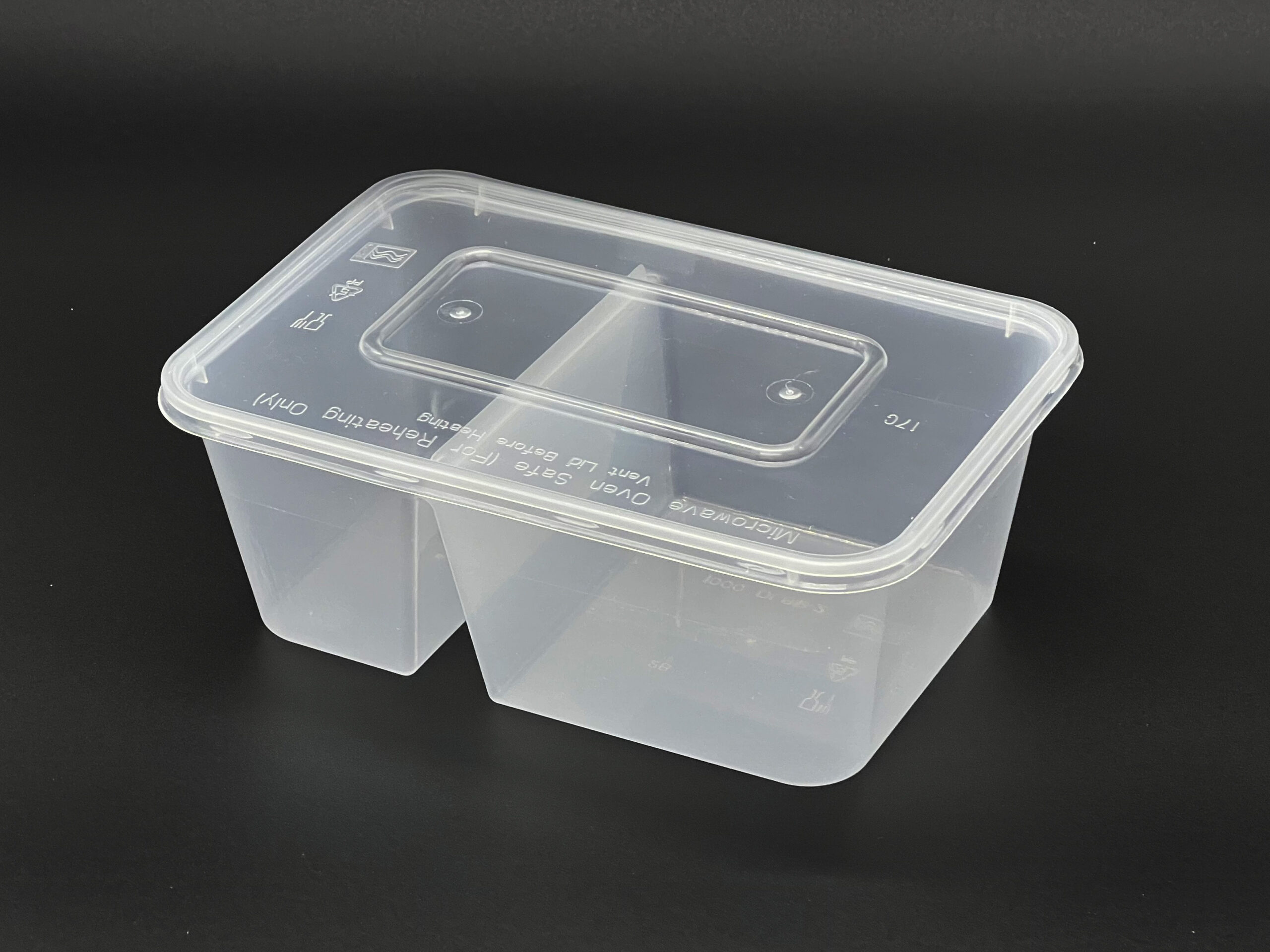
1000cc Rectangular Food Container 2 Section (700/300) Clear, 250 sets

Cameo Boat Plate (22.9cm / 9″) (6pcs) @ £4.38 + vat each
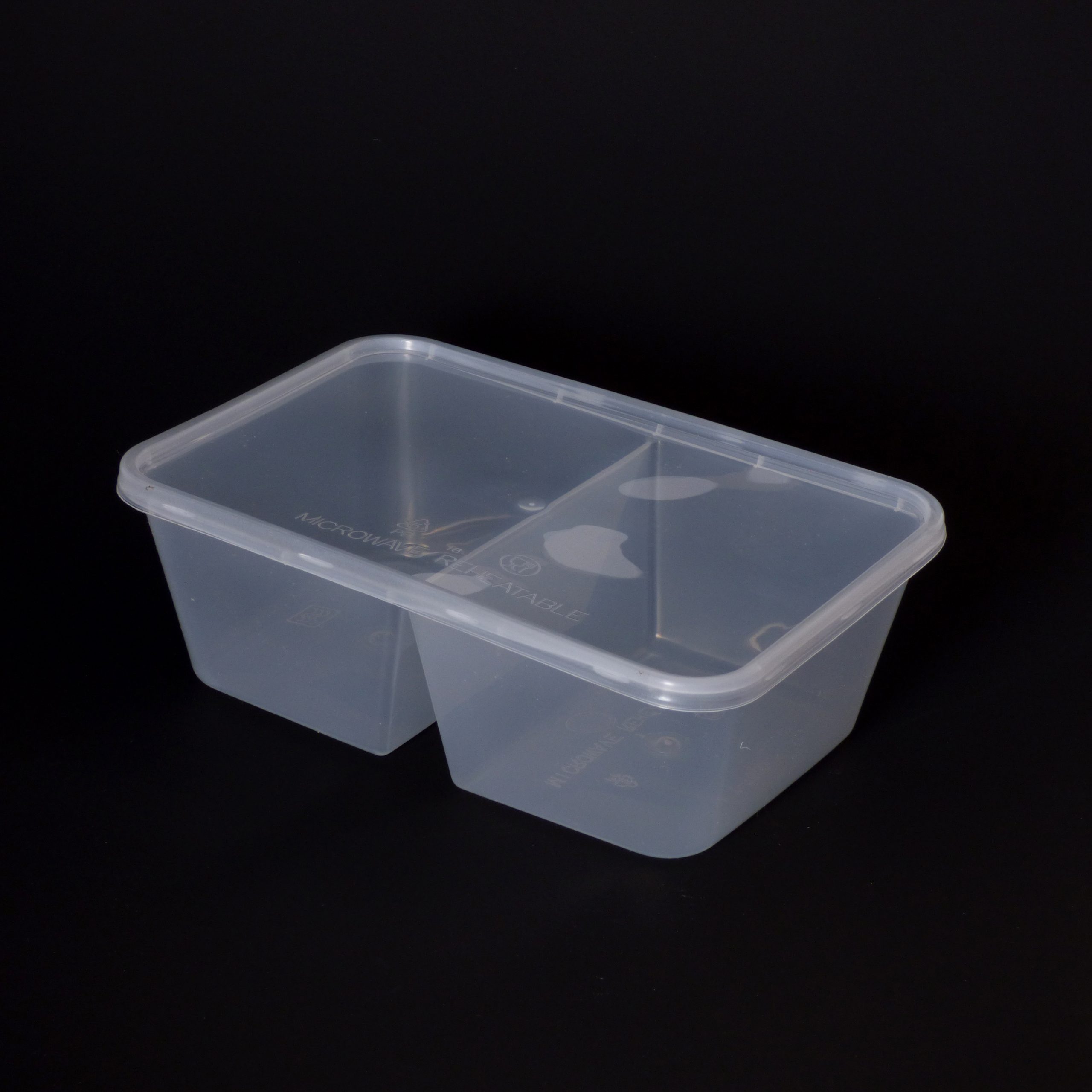
1000cc Rectangular Food Container 2 Section (50:50) 250 sets (T1000D)
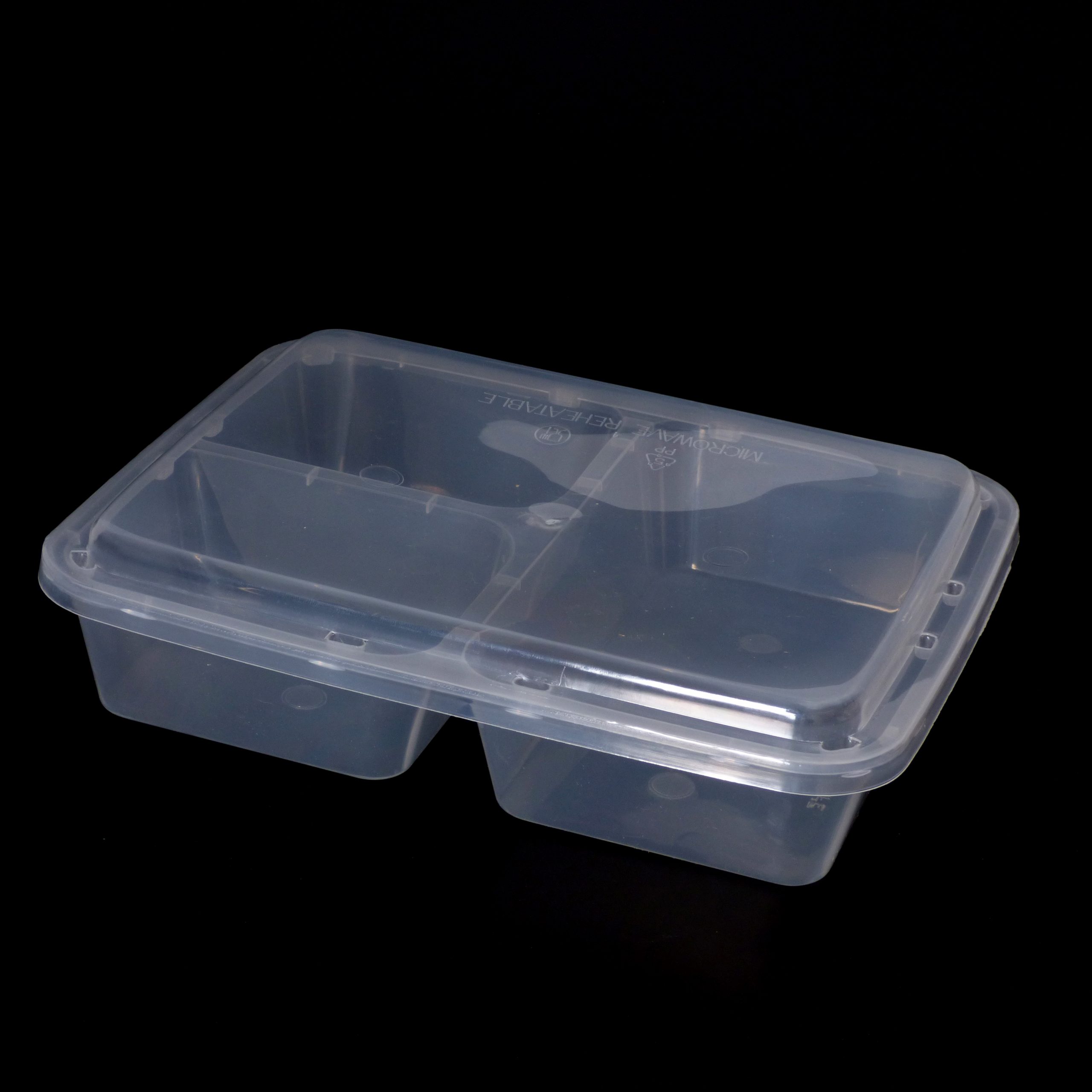
1200cc Rectangular Food Container 3 Section (100 sets)

